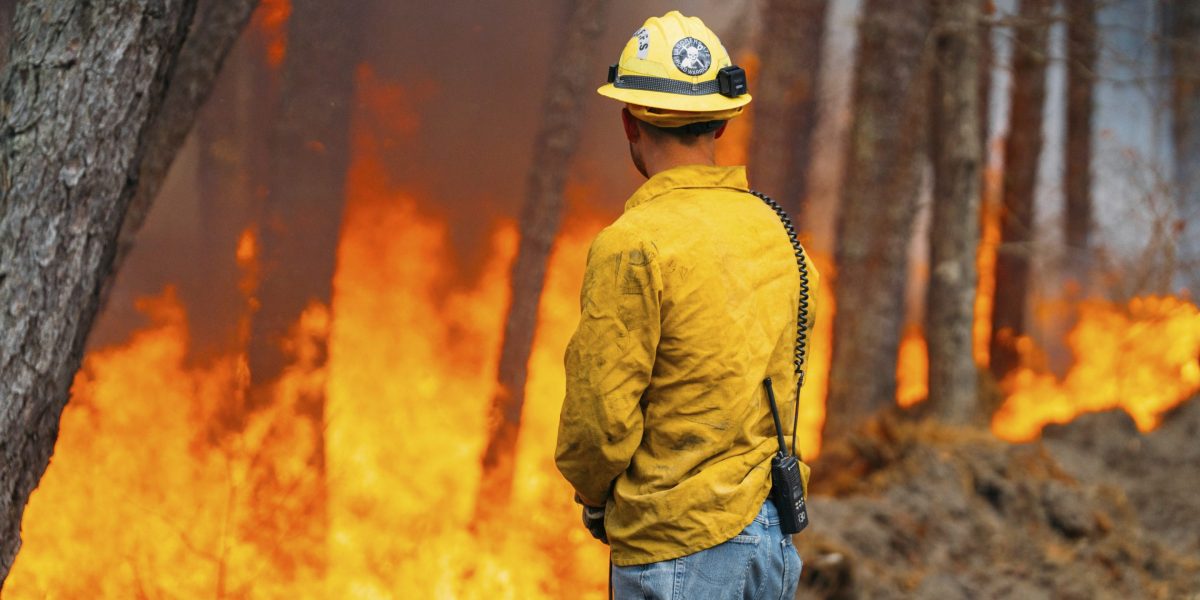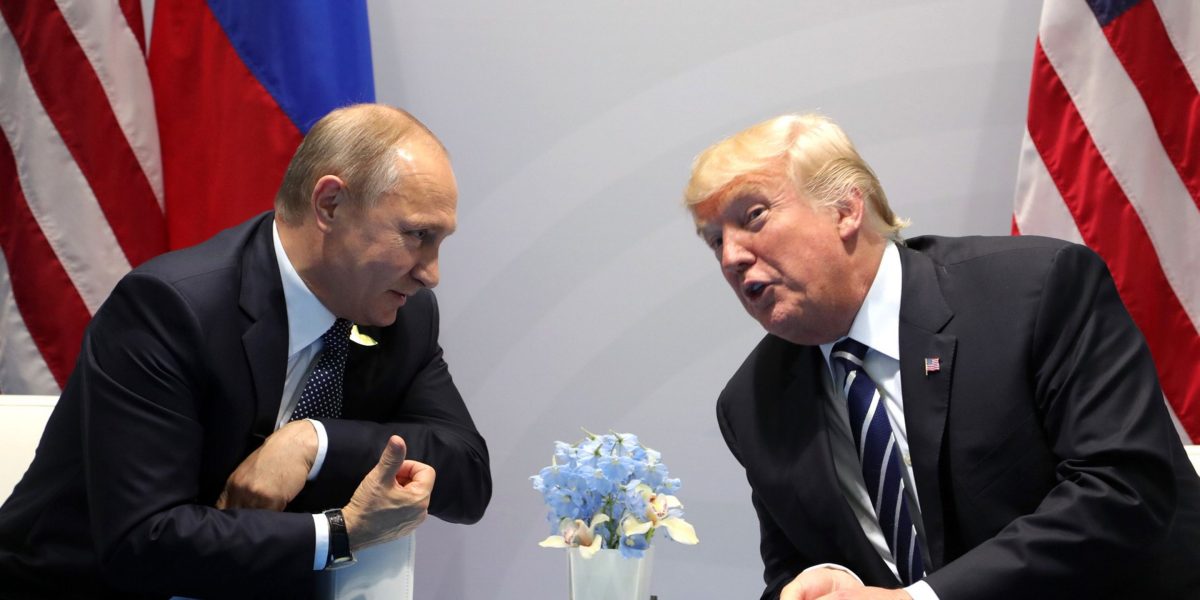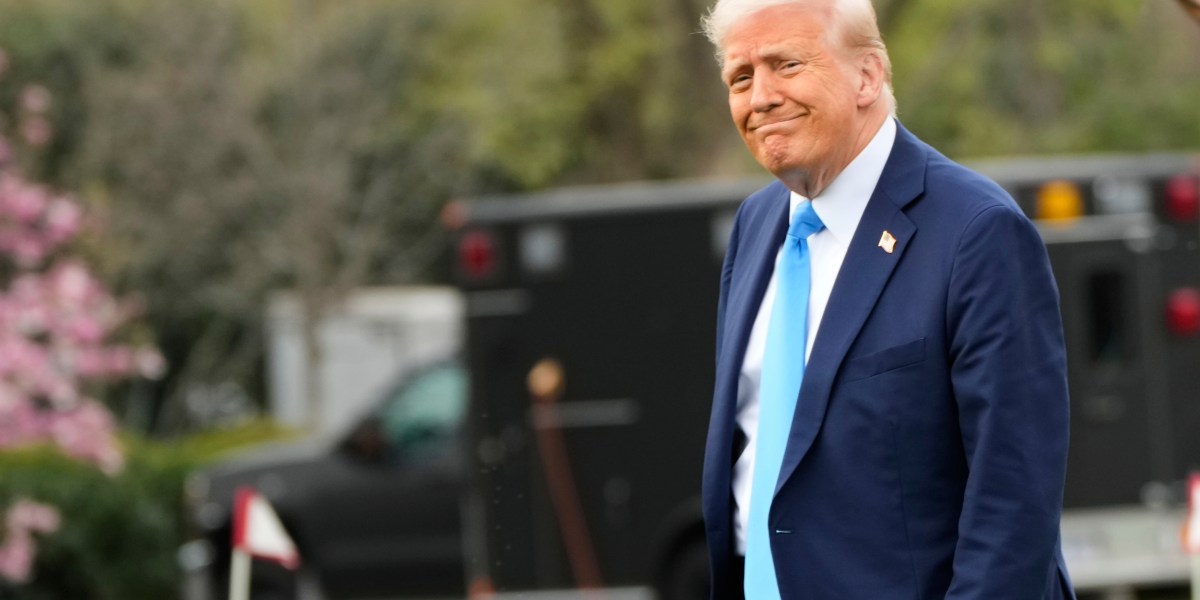President Donald Trump says Wednesday will be “Liberation Day” — a moment when he plans to roll out a set of tariffs that he promises will free the United States from foreign goods.
The details of Trump’s next round of import taxes are still sketchy. Most economic analyses say average U.S. families would have to absorb the cost of his tariffs in the form of higher prices and lower incomes. But an undeterred Trump is inviting CEOs to the White House to say they are investing hundreds of billions of dollars in new projects to avoid the import taxes.
It is also possible that the tariffs are short-lived if Trump feels he can cut a deal after imposing them.
“I’m certainly open to it, if we can do something,” Trump told reporters. “We’ll get something for it.”
At stake are family budgets, America’s prominence as the world’s leading financial power and the structure of the global economy.
Here’s what you should know about the impending trade penalties:
What exactly does Trump plan to do?
He wants to announce import taxes, including “reciprocal” tariffs that would match the rates charged by other countries and account for other subsidies. Trump has talked about taxing the European Union, South Korea, Brazil and India, among other countries.
As he announced 25% auto tariffs last week, he alleged that America has been ripped off because it imports more goods than it exports.
“This is the beginning of Liberation Day in America,” Trump said. “We’re going to charge countries for doing business in our country and taking our jobs, taking our wealth, taking a lot of things that they’ve been taking over the years. They’ve taken so much out of our country, friend and foe. And, frankly, friend has been oftentimes much worse than foe.”
In an interview Saturday with NBC News, Trump said it did not bother him if tariffs caused vehicle prices to rise because autos with more U.S. content could possibly be more competitively priced.
“I hope they raise their prices, because if they do, people are gonna buy American-made cars,” Trump said. “I couldn’t care less because if the prices on foreign cars go up, they’re going to buy American cars.”
Trump has also suggested that he will be flexible with his tariffs, saying he will treat other nations better than they treated the United States. But he still has plenty of other taxes coming on imports.
The Republican president plans to tax imported pharmaceutical drugs, copper and lumber. He has put forth a 25% tariff on any country that imports oil from Venezuela, even though the United States also does so. Imports from China are being charged an additional 20% tax because of its role in fentanyl production. Trump has imposed separate tariffs on goods from Canada and Mexico for the stated reason of stopping drug smuggling and illegal immigration. Trump also expanded his 2018 steel and aluminum tariffs to 25% on all imports.
Some aides suggest the tariffs are tools for negotiation on trade and border security; others say the revenues will help reduce the federal budget deficit. Commerce Secretary Howard Lutnick says they will force other nations to show Trump “respect.”
What could tariffs do to the US economy?
Nothing good, according to most economists. They say the tariffs would get passed along to consumers in the form of higher prices for autos, groceries, housing and other goods. Corporate profits could be lower and growth more sluggish. Trump maintains that more companies would open factories to avoid the taxes, though that process could take three years or more.
Economist Art Laffer estimates the tariffs on autos, if fully implemented, could increase per vehicle costs by $4,711, though he said he views Trump as a smart and savvy negotiator. The investment bank Goldman Sachs estimates the economy will grow this quarter at an annual rate of just 0.6%, down from a rate of 2.4% at the end of last year.
Mayor Andrew Ginther of Columbus, Ohio, said on Friday that tariffs could increase the median cost of a home by $21,000, making affordability more of an obstacle because building materials would cost more.
Treasury Secretary Scott Bessent has suggested that tariffs would be a one-time price adjustment, rather than the start of an inflationary spiral. But Bessent’s conclusion rests on tariffs being brief or contained, rather than leading other countries to retaliate with their own tariffs or seeping into other sectors of the economy.
“There is a chance tariffs on goods begin to filter through to the pricing of services,” said Samuel Rines, a strategist at WisdomTree. “Auto parts get move expensive, then auto repair gets more expensive, then auto insurance feels the pressure. While goods are the focus, tariffs could have a longer-term effect on inflation.”
How are other nations thinking about the new tariffs?
Most foreign leaders see the tariffs as destructive for the global economy, even if they are prepared to impose their own countermeasures.
Canadian Prime Minister Mark Carney said Trump’s tariff threats had ended the partnership between his country and the United States, even as the president on Friday talked about his phone call with Carney in relatively positive terms. Canada already has announced retaliatory tariffs.
French President Emmanuel Macron said the tariffs were “not coherent” and would mean “breaking value chains, creating inflation in the short term and destroying jobs. It’s not good for the American economy, nor for the European, Canadian or Mexican economies.” Yet Macron said his nation would defend itself with the goal of dismantling the tariffs.
Mexican President Claudia Sheinbaum has avoided the tit-for-tat responses on tariffs, but she sees it as critical to defend jobs in her country.
The Chinese government said Trump’s tariffs would harm the global trading system and would not fix the economic challenges identified by Trump.
“There are no winners in trade wars or tariff wars, and no country’s development and prosperity are achieved through imposing tariffs,” Foreign Ministry spokesperson Guo Jiakun said.
How did Trump land on it being called ‘Liberation Day’?
Based off Trump’s public statements, April 2 is at least the third “liberation day” that he has identified.
At a rally last year in Nevada, he said the day of the presidential election, Nov. 5, would be “Liberation Day in America.” He later gave his inauguration the same label, declaring in his address: “For American citizens, Jan. 20, 2025, is Liberation Day.”
His repeated designation of the term is a sign of just how much importance Trump places on tariffs, an obsession of his since the 1980s. Dozens of other countries recognize their own form of liberation days to recognize events such as overcoming Nazi Germany or the end of a previous political regime deemed oppressive.
Trump sees his tariffs as providing national redemption, but the slumping consumer confidence and stock market indicate that much of the public believes the U.S. economy will pay the price for his ambitions.
“I don’t see anything positive about Liberation Day,” said Phillip Braun, a finance professor at Northwestern University’s Kellogg School of Management. “It’s going to hurt the U.S. economy. Other countries are going to retaliate.”
This story was originally featured on Fortune.com
Source link

 Entertainment8 years ago
Entertainment8 years ago
 Politics8 years ago
Politics8 years ago
 Entertainment8 years ago
Entertainment8 years ago
 Entertainment8 years ago
Entertainment8 years ago
 Tech8 years ago
Tech8 years ago
 Tech8 years ago
Tech8 years ago
 Politics8 years ago
Politics8 years ago
 Tech8 years ago
Tech8 years ago







